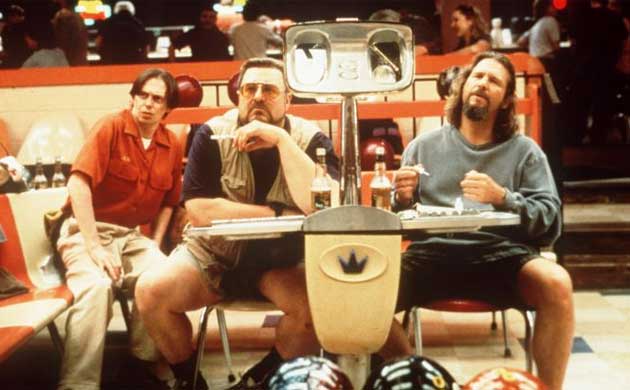
I didn’t quite make it over to the AFI for tonight’s showing of the Big Lebowski. Instead I was surfing the internet and drinking some beer. I was reading Lazy Man and Money a good personal finance website. Like our friend from the Big Lebowski, the Dude, Lazy Man likes to take it easy for all us sinners. In a recent post Lazy Man was talking about how he just learned about Social Capital. I guess I had taken it for granted everyone knew what social capital meant, but I hang out with too many economists.
Social Capital is a term that came on to my and most social scientists’ radar screen after Robert Putnam’s book “Bowling Alone.” The argument in the book was Americans were participating in fewer clubs like bowling leagues, churches, elks, moose, masons, Kiwanis, varmints … what have you. Unlike the Dude many Americans were moving from leagues to Bowling Alone from Putnam’s website.
“We are bowling alone. While a record number of Americans bowl today, bowling in organized leagues plunged 40 percent from 1980 to 1993. Lest you think this a trivial factoid, over 25% more Americans (91 million) bowled once or more in 1996 than voted in the 1998 congressional elections.”
By not bowling in Leagues people we are very unDude like, we do not have friends like Walter and Donny to call on when Germans demand a ransom from us or someone steals our car. The dude even used his social capital with his land lord gained by going to his performance to tied him over until he could pay rent.
For those of you not familiar with the Big Lebowski or Social Capital: From a seminar series on social capital related to Putnam’s book here is a quick primer on social capital (full link). If you haven’t seen the Big Lebowski go do it.
What does “social capital” mean?
Social networks have value – that is the central premise of social capital. Social capital refers to the collective value of all “social networks” [who people know] and the inclinations that arise from these networks to do things for each other [“norms of reciprocity”].
How does social capital work?
The term social capital emphasizes not just warm and cuddly feelings, but a wide variety of quite specific benefits that flow from the trust, reciprocity, information, and cooperation associated with social networks. Social capital creates value for the people who are connected and – at least sometimes – for bystanders as well. Social capital works through multiple channels:
a) information flows (e.g. about jobs, AIDS, college, etc.) depend on social capital
b) norms of reciprocity (mutual aid) are dependent on social networks.
• Bonding networks sustain particularized (in-group) reciprocity.
• Bridging networks sustain generalized reciprocity.
c) Collective action depends upon social networks (e.g., the role that the black church played in the civic rights movement) although collective action can also foster new networks.
d) Broader identities and solidarity are encouraged by social networks that help translate an “I” focus into a “we”.
1 comment:
Hi Seth,
I teach poli-sci over here in NM. When we cover the problems with American "democracy," I often tease students that maybe the solution is to just say "F*&& it!" and go bowling, which usually gets the lol's from the more savvy of the bunch. Then I tell them, "No really, Walter has it right" and then I explain Putnam's theory.
It's nice to know I'm not the only one making these odd connections.
Seems like you've analyzed it even deeper, ever thought about writing something more academic on these 2 topics?
Best,
Katrina Taylor
Post a Comment